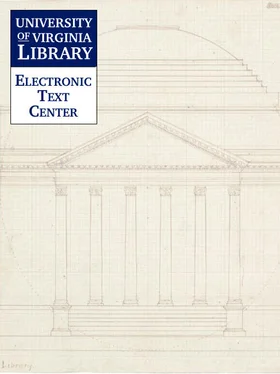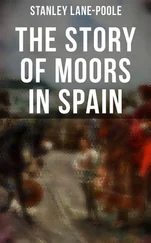Hendrik Loon - The Story of Mankind
Здесь есть возможность читать онлайн «Hendrik Loon - The Story of Mankind» весь текст электронной книги совершенно бесплатно (целиком полную версию без сокращений). В некоторых случаях можно слушать аудио, скачать через торрент в формате fb2 и присутствует краткое содержание. Год выпуска: 2000, Издательство: Electronic Text Center. University of Virginia Library., Жанр: Старинная литература, на английском языке. Описание произведения, (предисловие) а так же отзывы посетителей доступны на портале библиотеки ЛибКат.
- Название:The Story of Mankind
- Автор:
- Издательство:Electronic Text Center. University of Virginia Library.
- Жанр:
- Год:2000
- ISBN:нет данных
- Рейтинг книги:3 / 5. Голосов: 1
-
Избранное:Добавить в избранное
- Отзывы:
-
Ваша оценка:
- 60
- 1
- 2
- 3
- 4
- 5
The Story of Mankind: краткое содержание, описание и аннотация
Предлагаем к чтению аннотацию, описание, краткое содержание или предисловие (зависит от того, что написал сам автор книги «The Story of Mankind»). Если вы не нашли необходимую информацию о книге — напишите в комментариях, мы постараемся отыскать её.
The Story of Mankind — читать онлайн бесплатно полную книгу (весь текст) целиком
Ниже представлен текст книги, разбитый по страницам. Система сохранения места последней прочитанной страницы, позволяет с удобством читать онлайн бесплатно книгу «The Story of Mankind», без необходимости каждый раз заново искать на чём Вы остановились. Поставьте закладку, и сможете в любой момент перейти на страницу, на которой закончили чтение.
Интервал:
Закладка:
Europe had peace, but it was the peace of the cemetery.
The three most important men at Vienna were the Emperor Alexander of Russia, Metternich, who represented the interests of the Austrian house of Habsburg, and Talleyrand, the erstwhile bishop of Autun, who had managed to live through the different changes in the French government by the sheer force of his cunning and his intelligence and who now travelled to the Austrian capital to save for his country whatever could be saved from the Napoleonic ruin. Like the gay young man of the limerick, who never knew when he was slighted, this unbidden guest came to the party and ate just as heartily as if he had been really invited. Indeed, before long, he was sitting at the head of the table entertaining everybody with his amusing stories and gaining the company's good will by the charm of his manner.
Before he had been in Vienna twenty-four hours he knew that the allies were divided into two hostile camps. On the one side were Russia, who wanted to take Poland, and Prussia, who wanted to annex Saxony; and on the other side were Austria and England, who were trying to prevent this grab because it was against their own interest that either Prussia or Russia should be able to dominate Europe. Talleyrand played the two sides against each other with great skill and it was due to his efforts that the French people were not made to suffer for the ten years of oppression which Europe had endured at the hands of the Imperial officials. He argued that the French people had been given no choice in the matter. Napoleon had forced them to act at his bidding. But Napoleon was gone and Louis XVIII was on the throne. ``Give him a chance,'' Talleyrand pleaded. And the Allies, glad to see a legitimate king upon the throne of a revolutionary country, obligingly yielded and the Bourbons were given their chance, of which they made such use that they were driven out after fifteen years.
The second man of the triumvirate of Vienna was Metternich, the Austrian prime minister, the leader of the foreign policy of the house of Habsburg. Wenzel Lothar, Prince of Metternich-Winneburg, was exactly what the name suggests. He was a Grand Seigneur, a very handsome gentleman with very fine manners, immensely rich, and very able, but the product of a society which lived a thousand miles away from the sweating multitudes who worked and slaved in the cities and on the farms. As a young man, Metternich had been studying at the University of Strassburg when the French Revolution broke out. Strassburg, the city which gave birth to the Marseillaise, had been a centre of Jacobin activities. Metternich remembered that his pleasant social life had been sadly interrupted, that a lot of incompetent citizens had suddenly been called forth to perform tasks for which they were not fit, that the mob had celebrated the dawn of the new liberty by the murder of perfectly innocent persons. He had failed to see the honest enthusiasm of the masses, the ray of hope in the eyes of women and children who carried bread and water to the ragged troops of the Convention, marching through the city on their way to the front and a glorious death for the French Fatherland.
The whole thing had filled the young Austrian with disgust. It was uncivilised. If there were any fighting to be done it must be done by dashing young men in lovely uniforms, charging across the green fields on well-groomed horses. But to turn an entire country into an evil-smelling armed camp where tramps were overnight promoted to be generals, that was both wicked and senseless. ``See what came of all your fine ideas,'' he would say to the French diplomats whom he met at a quiet little dinner given by one of the innumerable Austrian grand-dukes. ``You wanted liberty, equality and fraternity and you got Napoleon. How much better it would have been if you had been contented with the existing order of things.'' And he would explain his system of ``stability.'' He would advocate a return to the normalcy of the good old days before the war, when everybody was happy and nobody talked nonsense about ``everybody being as good as everybody else.'' In this attitude he was entirely sincere and as he was an able man of great strength of will and a tremendous power of persuasion, he was one of the most dangerous enemies of the Revolutionary ideas. He did not die until the year 1859, and he therefore lived long enough to see the complete failure of all his policies when they were swept aside by the revolution of the year 1848. He then found himself the most hated man of Europe and more than once ran the risk of being lynched by angry crowds of outraged citizens. But until the very last, he remained steadfast in his belief that he had done the right thing.
He had always been convinced that people preferred peace to liberty and he had tried to give them what was best for them. And in all fairness, it ought to be said that his efforts to establish universal peace were fairly successful. The great powers did not fly at each other's throat for almost forty years, indeed not until the Crimean war between Russia and England, France and Italy and Turkey, in the year 1854. That means a record for the European continent.
The third hero of this waltzing congress was the Emperor Alexander. He had been brought up at the court of his grandmother mother, the famous Catherine the Great. Between the lessons of this shrewd old woman, who taught him to regard the glory of Russia as the most important thing in life, and those of his private tutor, a Swiss admirer of Voltaire and Rousseau, who filled his mind with a general love of humanity, the boy grew up to be a strange mixture of a selfish tyrant and a sentimental revolutionist. He had suffered great indignities during the life of his crazy father, Paul I. He had been obliged to witness the wholesale slaughter of the Napoleonic battle-fields. Then the tide had turned. His armies had won the day for the Allies. Russia had become the saviour of Europe and the Tsar of this mighty people was acclaimed as a half-god who would cure the world of its many ills.
But Alexander was not very clever. He did not know men and women as Talleyrand and Metternich knew them. He did not understand the strange game of diplomacy. He was vain (who would not be under the circumstances?) and loved to hear the applause of the multitude and soon he had become the main ``attraction'' of the Congress while Metternich and Talleyrand and Castlereagh (the very able British representative) sat around a table and drank a bottle of Tokay and decided what was actually going to be done. They needed Russia and therefore they were very polite to Alexander, but the less he had personally to do with the actual work of the Congress, the better they were pleased. They even encouraged his plans for a Holy Alliance that he might be fully occupied while they were engaged upon the work at hand.
Alexander was a sociable person who liked to go to parties and meet people. Upon such occasions he was happy and gay but there was a very different element in his character. He tried to forget something which he could not forget. On the night of the 23rd of March of the year 1801 he had been sitting in a room of the St. Michael Palace in Petersburg, waiting for the news of his father's abdication. But Paul had refused to sign the document which the drunken officers had placed before him on the table, and in their rage they had put a scarf around his neck and had strangled him to death. Then they had gone downstairs to tell Alexander that he was Emperor of all the Russian lands.
The memory of this terrible night stayed with the Tsar who was a very sensitive person. He had been educated in the school of the great French philosophers who did not believe in God but in Human Reason. But Reason alone could not satisfy the Emperor in his predicament. He began to hear voices and see things. He tried to find a way by which he could square himself with his conscience. He became very pious and began to take an interest in mysticism, that strange love of the mysterious and the unknown which is as old as the temples of Thebes and Babylon.
Читать дальшеИнтервал:
Закладка:
Похожие книги на «The Story of Mankind»
Представляем Вашему вниманию похожие книги на «The Story of Mankind» списком для выбора. Мы отобрали схожую по названию и смыслу литературу в надежде предоставить читателям больше вариантов отыскать новые, интересные, ещё непрочитанные произведения.
Обсуждение, отзывы о книге «The Story of Mankind» и просто собственные мнения читателей. Оставьте ваши комментарии, напишите, что Вы думаете о произведении, его смысле или главных героях. Укажите что конкретно понравилось, а что нет, и почему Вы так считаете.












